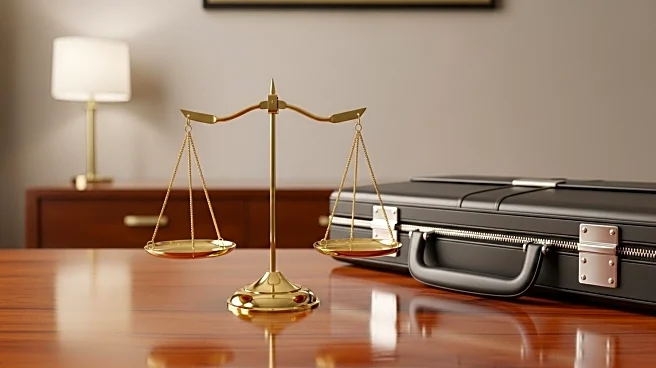What's Happening?
President Trump has signed a proclamation imposing a $100,000 annual fee for H-1B visa applications, with case-by-case exemptions allowed if deemed in the national interest. This move has raised concerns about potential corruption, as companies might circumvent the fee by offering favors to the administration. The H-1B visa program has historically been used by companies to bring in foreign workers who are often willing to work long hours for lower pay due to their inability to switch employers easily. The fee aims to discourage the hiring of foreign skilled workers, potentially reducing the 'brain drain' experienced by other countries when their skilled professionals move to the U.S.
Why It's Important?
The imposition of a high fee on H-1B visa applications could significantly impact U.S. industries reliant on foreign skilled labor, particularly in technology and engineering sectors. Companies may face increased costs, potentially leading to a shift in hiring practices or a reduction in foreign talent acquisition. This policy could also affect international relations, as countries losing skilled workers to the U.S. might view this as a protective measure against their economic interests. While it may benefit domestic workers by reducing competition, it could also limit innovation and growth driven by diverse global talent.
What's Next?
Stakeholders, including businesses and advocacy groups, are likely to respond to this policy change. Companies may seek legal avenues to challenge the fee or lobby for more exemptions. The administration might face pressure to clarify the criteria for national interest exemptions to prevent misuse. Additionally, there could be diplomatic discussions with countries affected by the reduced mobility of their skilled workers.










